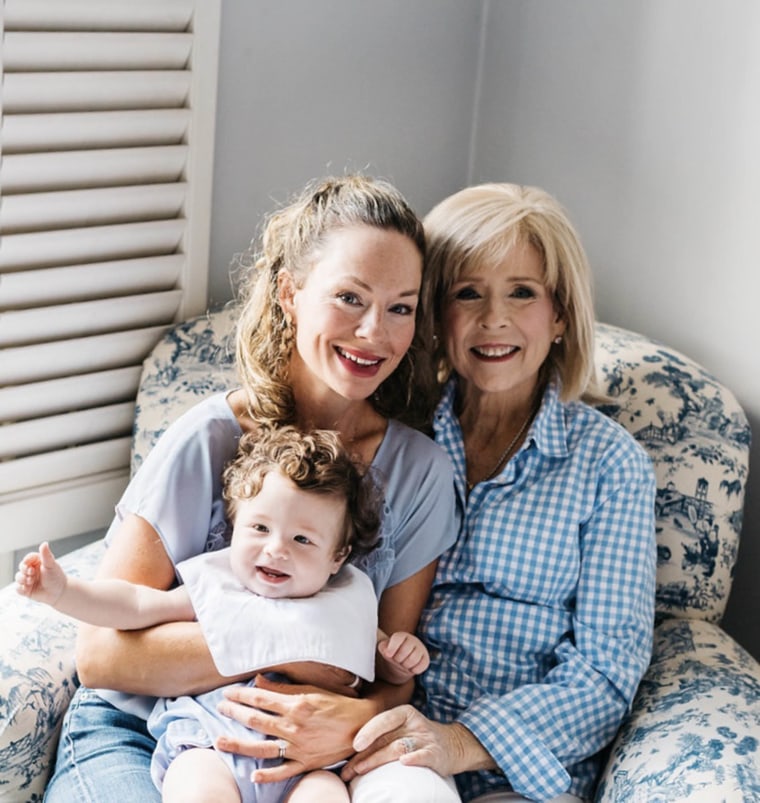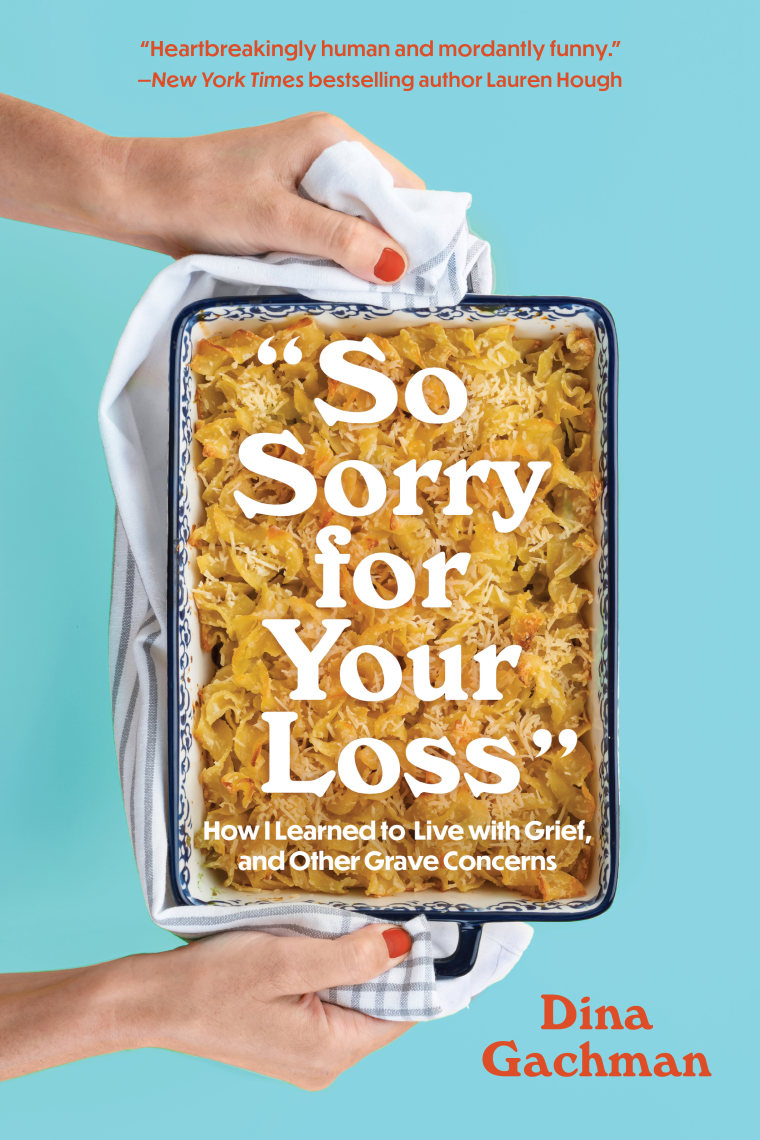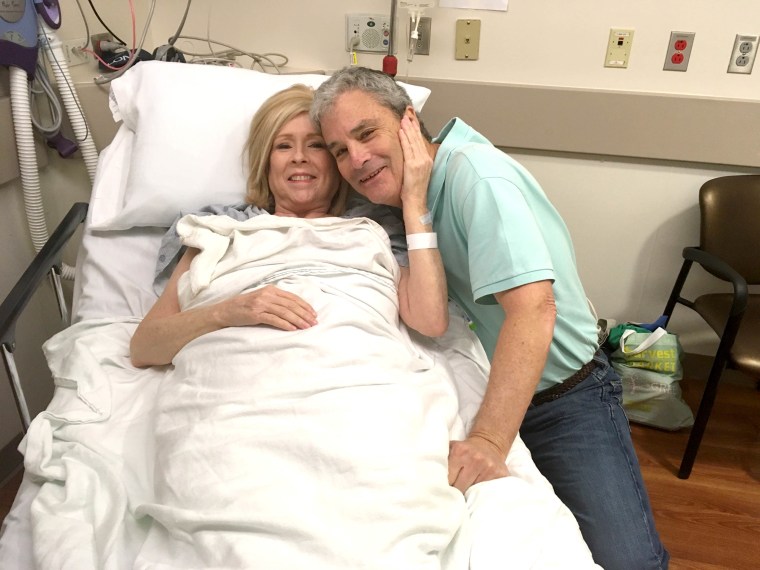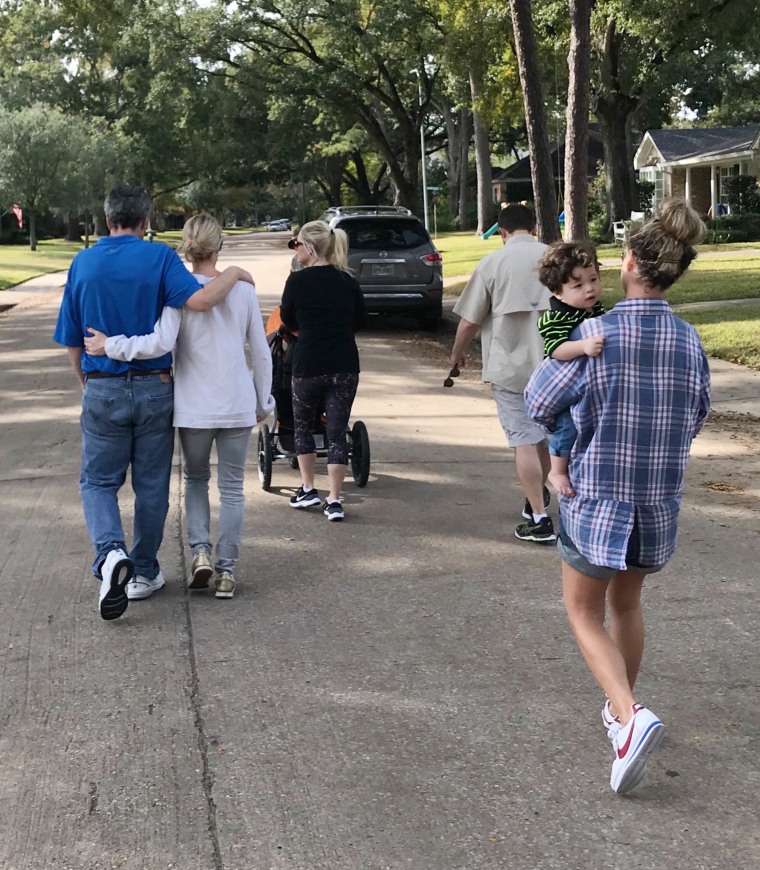Five days into my mother’s at-home hospice, at the end of her battle with colon cancer, I called my husband, Jerett, to tell him it was time for him to fly out to Houston from Los Angeles with our son, Cole, who was only 13 months old. When he told me he’d buy a ticket for the following day, I experienced a fear I’d never imagined I would have.
I was terrified that I would have no love or energy at all to give to my son. I didn’t know if I could take care of my mom, go through losing her, and also be a mother to my own child. I was convinced I would fail him. How do we handle anything other than our grief when we’re in the depths of it? How do we manage work and child care and relationships, when we have so much heaviness pulling us to the ground? In the toughest moments, it’s hard to imagine giving one more ounce of yourself away. I had very little confidence that I could take on anything other than administering medications and keeping myself awake, and that scared me.

When Jerett walked into the house that Thursday with Cole, to my relief I hurried over to them and felt a rush of love. There was more to give, and what I hadn’t realized was that my son would restore my energy, instead of sucking me dry. My mom was slowly leaving, but I had this child to feed and change and medicate since, in keeping with Murphy’s Law of Parenting, my kid happened to get a virus right at that time.
For the next few days, the hours melted away, and we went through the motions of living, existing within a space that felt suspended just outside the limits of everyday life. The hospice nurses continued to say, “I don’t think it’ll be more than 24 hours,” and we continued to tell my mom how much we loved her, how lucky we were to have had her. We defrosted lasagnas and casseroles and barely ate them. We drank wine, without joy. By the last two days, which we did not know at the time would be the last two days, we finally found the courage to say, “Mom, it’s OK now. You can go.”

She died on Sunday. That morning, my father and sisters and I walked into the room together to be with her one final time. Those moments are a blur to me now. What was said, how our bodies moved through space. It’s an impression, vague and yet full of sorrow. There is no way, for me at least, to process or analyze the actual moment you realize a mother, your mother, has left. What is your life going to be like without the person who raised you? What does it mean that she’s gone — your touchstone, the one who, even as she drove you nuts, always made you feel most like yourself? No one knows you like your mother, people often say. So how do you continue without this person, who was so much a part of you? The person who gave you your laugh, your sense of humor, your love of Natalie Wood’s movies and Toni Morrison’s writing. That shift in existence is a shimmer, imperceptible, unmooring. Maybe that’s why, looking back, all I can ever remember in that room is the sunlight, and silence.
Eventually, we had to call the hospice nurses and Lev, the funeral director. As devastated as we were, we made sure to tell Lev that he’d better bury our mom with her blonde wig on, or else. A Texas belle to the end, she hated losing her hair, and she would not just haunt us but kill us in our sleep if we let Lev bury her without that wig. Lev completely understood.

After we spoke to Lev, my siblings and I also needed to safely dispose of the morphine, tell other family members, and give our own kids the million things they needed from us. We were compelled to move forward, whether we liked it or not.
There’s a tradition in Judaism where, after sitting shiva, which is the weeklong mourning period, the family goes outside and walks around the block together. It signifies the bereaved reentering society. It’s supposed to happen a week after the burial, but we’re not exactly traditional, so the morning my mom died, my dad said he wanted us all to go outside and walk around the block, in keeping with that tradition, sort of. It was a gorgeous day, the kind of sunny, temperate weather our mom loved. Santa Barbara weather, she would have said. She couldn’t stand the muggy Houston summers. She was a Texan to her core, though, so despite her love of places like Santa Barbara, she never would have lived anywhere else.
We stepped outside. I held Cole in my arms, and, together, we walked. Rows of old live oak trees canopied the streets. I’m not sure what anyone said during our walk, if we said much of anything at all. I think we were mostly silent. It takes much longer than a simple stroll for loss to settle in, if it settles at all. It’s still settling around me, nearly five years after that walk below the oaks.

That Sunday afternoon, we wound through streets where kids played football and neighbors watered lawns. Maybe to them we just looked like an exceptionally pensive family taking a stroll, but that walk, which lasted much longer than a few blocks, wasn’t symbolic of us reentering society. It was us actually, physically entering a new existence. Moving into a world where we would carry grief with us, always. None of us knew what was ahead, or how we would cope or function. We did know that millions of people had experienced grief of this depth, every day, for centuries, and somehow they endured. And so, beneath the shady oaks, we walked, away from that horrible hospice week and into the rest of our lives, without her.
Excerpted from “So Sorry For Your Loss: How I Learned to Live with Grief, and Other Grave Concerns” © 2023 by Dina Gachman, published by Union Square & Co.